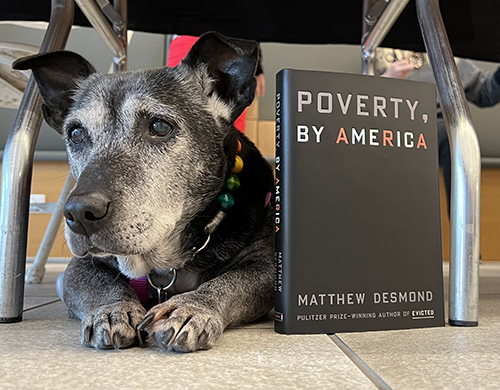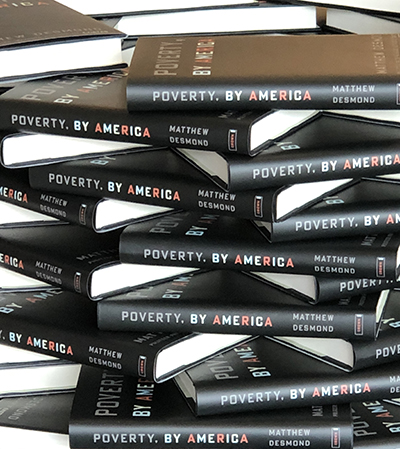 On March 29, Professor Margalynne Armstrong introduced Matthew Desmond to give an emotional and stark presentation on the subject of his latest book “Poverty, by America” to a silent audience of 130 in the Panelli Courtroom of Santa Clara School of Law. Desmond is a Professor of Sociology at Princeton University, McArthur Genius Grant recipient, and Pulitzer Prize-winning author of “Evicted.”
On March 29, Professor Margalynne Armstrong introduced Matthew Desmond to give an emotional and stark presentation on the subject of his latest book “Poverty, by America” to a silent audience of 130 in the Panelli Courtroom of Santa Clara School of Law. Desmond is a Professor of Sociology at Princeton University, McArthur Genius Grant recipient, and Pulitzer Prize-winning author of “Evicted.”
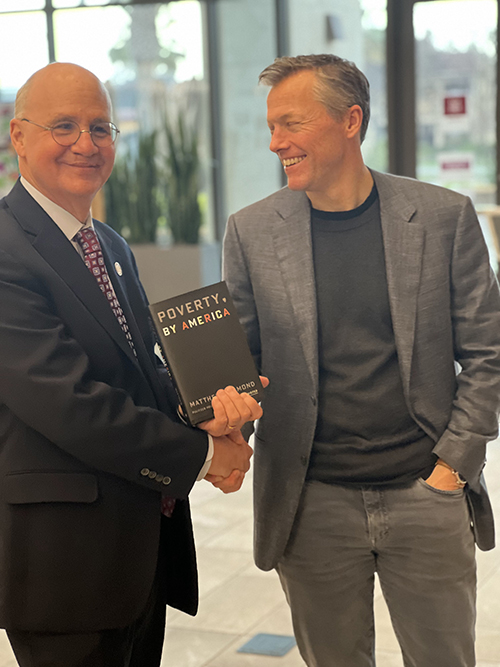
Matthew Desmond and Dean Michael Kaufman
The event came as the book debuted at #1 on the New York Times Nonfiction Best Seller list. Matt Desmond explores why 38 million people live in poverty in the United States, one of the richest countries in the world. The book examines the ways in which affluent Americans keep poor people poor—the pitfalls of a society based on consumption and profit, in which individuals of high wealth benefit from the poverty created by the exploitation of labor and the tax code. Desmond calls for the reader to become a poverty abolitionist, and to work towards a future without poverty. 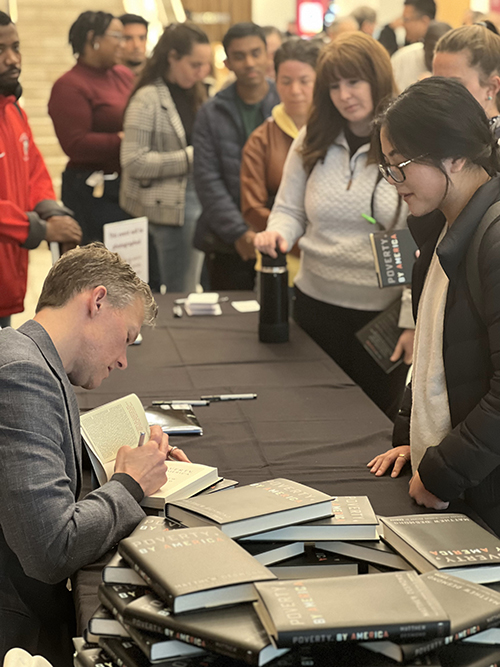
Stemming from a myriad of research and data, Desmond expressed example after example of policies and trends that, if turned around, could eliminate poverty in America. He quoted such data as “families in the top 20 percent receive almost 40 percent more in government subsidies than families in the bottom 20 percent.”
Matthew Desmond wrote in Poverty, By America: “As our incomes have grown, we’ve chosen to spend more on personal consumption and less on public works. Our vacations are more lavish, but schoolteachers must now buy their own school supplies. We put more money into savings to fuel intergenerational wealth creation but collectively spend less on expanding opportunity to all children.”
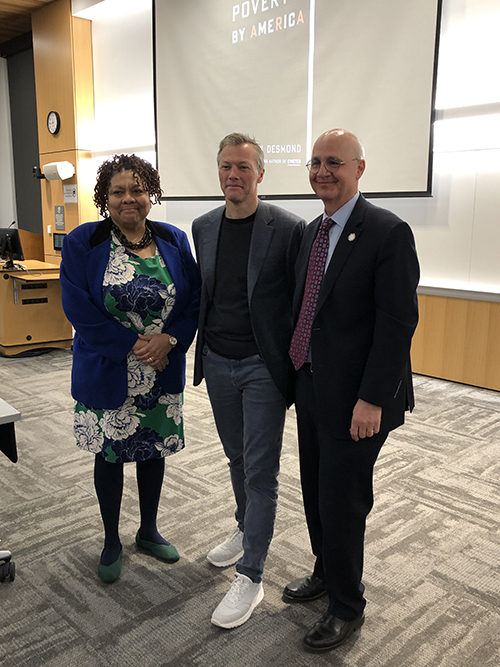 Desmond challenges us to move out of our comfort zone and consider our complicity in the persistence of the nation’s extraordinary levels of poverty. He shows us that: “Poverty isn’t simply the condition of not having enough money. It’s the condition of not having enough choice and being taken advantage of because of that.”
Desmond challenges us to move out of our comfort zone and consider our complicity in the persistence of the nation’s extraordinary levels of poverty. He shows us that: “Poverty isn’t simply the condition of not having enough money. It’s the condition of not having enough choice and being taken advantage of because of that.”
The presentation was followed by a Q&A session, moderated by Professor Armstrong, during which audience questions were addressed, and free-market theories discussed. The event concluded with a book signing, where each attendee was able to engage with the author while having their book—received as a part of the registration—signed.
Attendees came from all over campus, as well as the community, and the event was well attended by our law school students, faculty, alumni, and staff from around the campus, and joined by many in the community. Lunch was provided.